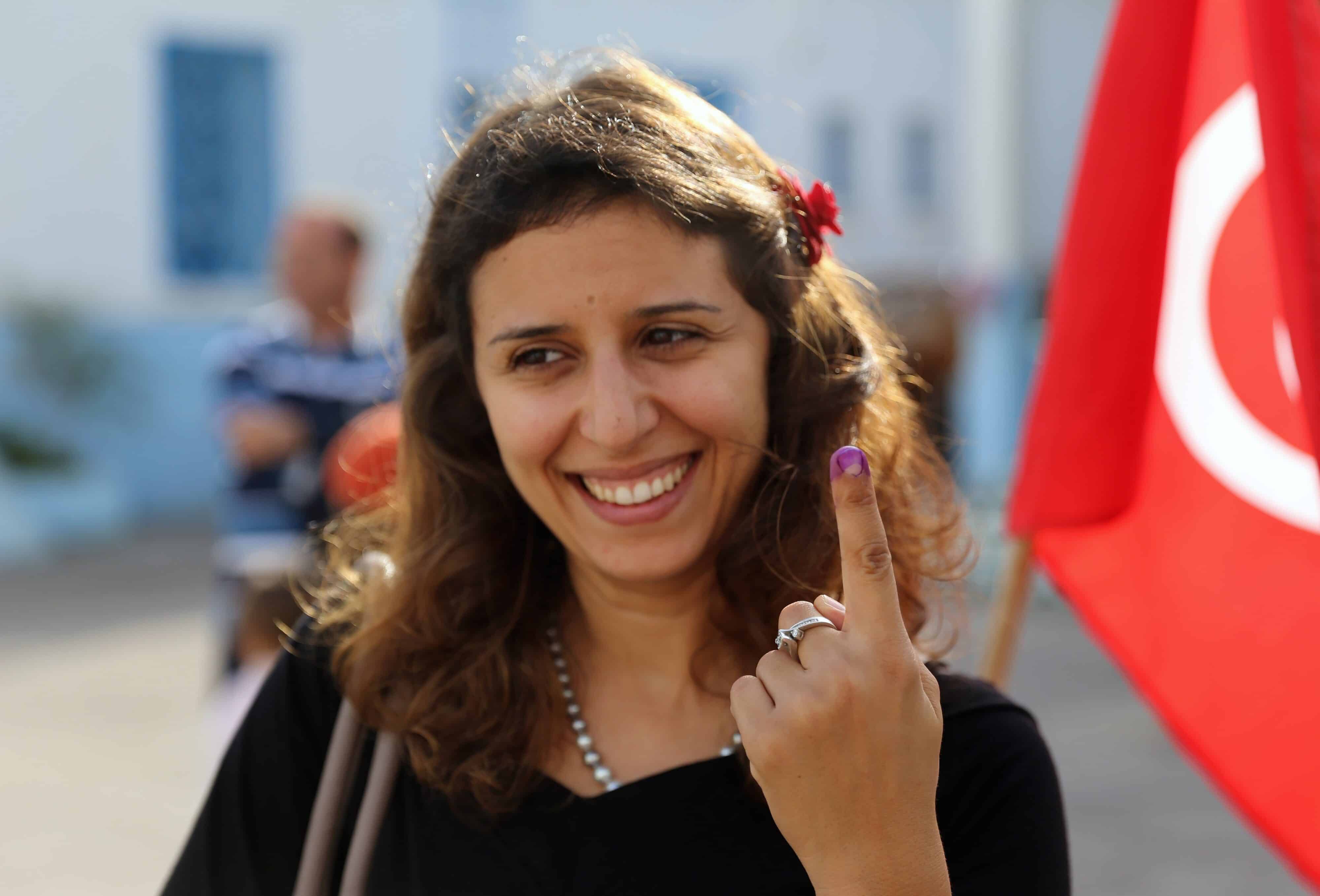
A Revolution in Four Seasons
In December of 2010, Tunisian street vendor Mohamed Bouazizi lit himself on fire in protest of government corruption and poor living conditions. This act was a catalyst for the Arab Spring; the people united in an unprecedented peaceful revolt against dictator Ben Ali, forcing him to flee the country. Tunisians who had never known democracy were then left with the question of what democracy in their country could mean. A REVOLUTION IN FOUR SEASONS seeks to answer that question from the perspective of two young women who persevere and blossom alongside their country. This four-year evolution is loosely characterized by four seasons: 2011 is the Summer of hope, 2012 the Autumn of work, 2013, the Winter of despair and 2014, the Spring of democracy.
A REVOLUTION IN FOUR SEASONS tracks journalist Emna Ben Jemaa and Constituent Assembly member Jawhara Ettis over the course of Tunisia’s critical first four years after the Revolution. Emna is a secular journalist fighting to keep religion out of government, while Jawhara works within Parliament to help gently guide the nation towards more Islamic principles. Both women exhibit remarkable determination, wisdom, and resilience in their efforts to steer the country towards their own disparate versions of the perfect democracy. Through their eyes and actions, the audience can examine both the development of a new government and the destabilizing barriers it still faces. The women’s roles in society are key indicators of the overall success of this crucial democratic experiment.
When we first meet them, Emna and Jawhara are on the brink of self-discovery both as women and as professionals. Like their country, they are full of hope and potential, seeking what comes next for them. With them we embark on an exploration of what it means to be a modern Islamic woman – balancing work, family, and politics in the context of a budding democracy. Over the four years following Tunisia’s revolution Jawhara and Emna must make difficult compromises as ambitious participants in this fragile new climate. Paralleling this is Tunisia’s development as it is threatened by economic strain, political assassinations, acts of terrorism, and protests which ultimately force Jawhara’s government to step down.
Tunisia launched the Arab Spring in January 2011, with the first peaceful revolution in the region. It currently stands alone as the only Arab Spring country of six that still has a chance to be a functional democracy, having rightfully earned the Nobel Peace Prize for avoiding a backslide into chaos in 2015.Restez à l'écoute pour des projections à venir!




